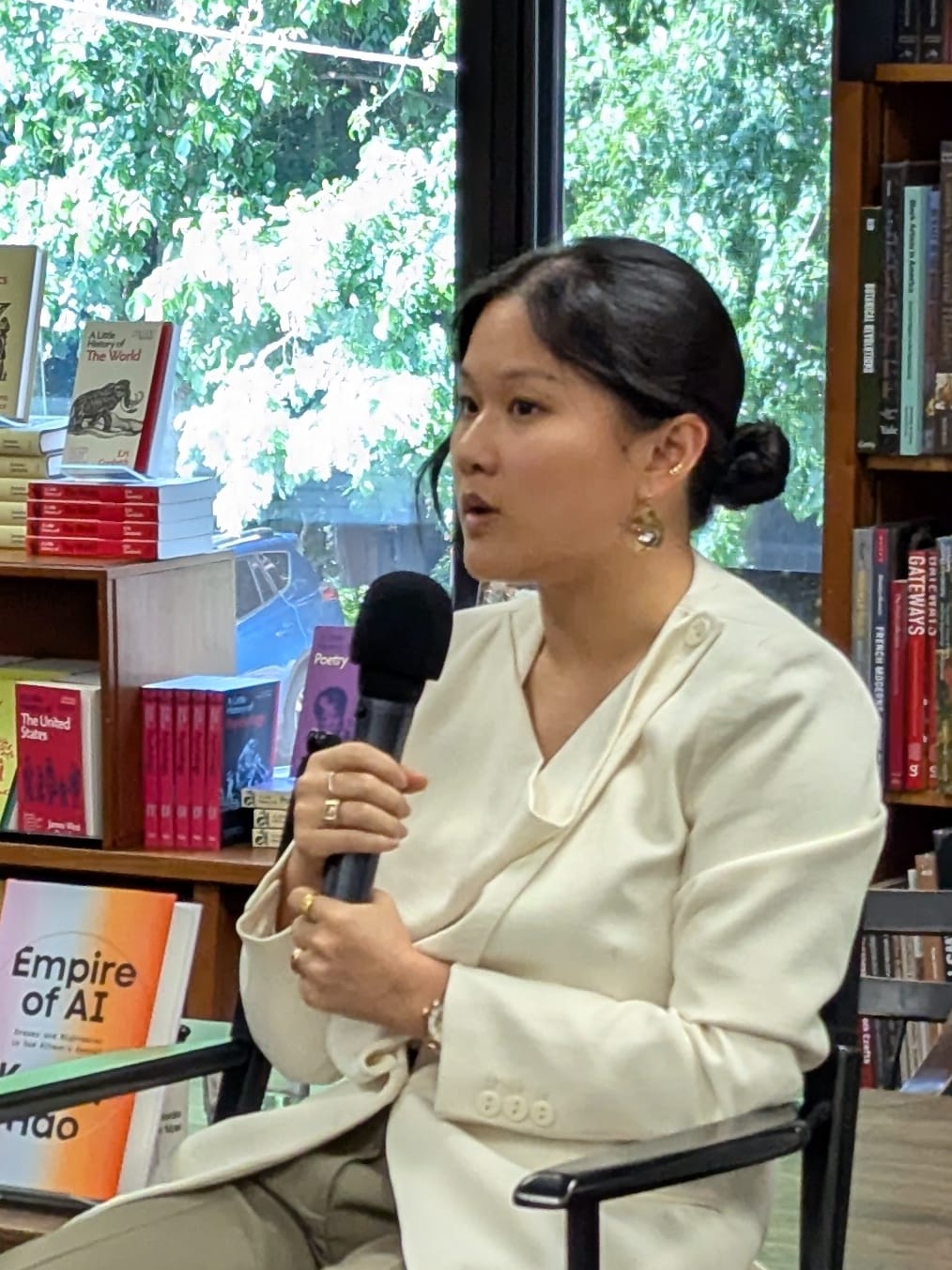Empire of AI: Dreams and Nightmares in Sam Altman's OpenAI

On the surface, Empire of AI centers Sam Altman as the central actor and antihero. Go deeper, and you soon realize Karen Hao uses Altman brilliantly as a foil to tell the story of a tiny handful of Silicon Valley elites who are shaping the future of AI.
Hao conducted over 300 interviews, including a minimum of 90 with current and former OpenAI executives and employees, to deliver this must-read book explaining how we arrived here, as well as the few tools we have available to resist ‘data colonization.’
Hao, the first journalist to profile the company and gain extensive access to them, takes you from an initial private dinner with top engineers, AI researchers, and Elon Musk held in the summer of 2015, where the inception of OpenAI happened, to their current role bringing the world to the precipice of artificial general intelligence (AGI).
In the Prologue, Hao introduces the book’s central question:
How do we govern artificial intelligence?

Inside the Closed Doors of AI’s Power Players
OpenAI, led by a uniquely gifted storyteller and savvy dealmaker, sold the world on a nonprofit structure with a nonprofit board empowered to clip his wings if he drifted too far away from their mission and vision of birthing AGI without harming humanity.
Altman also sold the world on openness and transparency. Then he walked that very commitment back well before OpenAI released its first public model to the App Store on November 30, 2022, GPT-3.5.
Throughout her book, Hao shares detailed accounts of current and former employees of OpenAI, AI researchers in the industry, and those working within other Big Tech companies, as well as communities dedicated to increasing AI safety, corporate governance, and accountability.
Once you finish reading Empire of AI, a fair-minded reader can only conclude that OpenAI, Google, Anthropic, and the other major players in AI will provide their own governance.
We, the public, will live with the results.
Your Attention, Their Profits: The Unrecognized Environmental Cost
Have you ever felt like, “I need to break this addiction?”
I’m talking about your social media addiction, not the other stuff.
After Hao exposes you to the scale of environmental abuses underway, water and energy, and raiding rare earth minerals. It becomes harder to use these AI tools with a clear conscience.
Truthfully, there’s barely a thin line between the time we spend on social platforms daily, and ChatGPT too, and the record-breaking profits these social platforms earn from advertisers by keeping our attention for hours and hours.
Consumers might have more of an ability to push for corporate accountability and governance, not individually but collectively, than current and former employees of Big Tech, and the AI researchers who are disturbed by what’s taken place around AI safety and transparency.
Advertisers disappear when eyeballs disappear.
Ask local and national newspapers, radio, and television. All have steadily watched dollars that once went their way, end up with Meta and Google.
When Communities Fight Against Big Tech
Between telling it to us straight throughout Empire of AI, Hao steadily points to one theme for fighting back and rebalancing the scale — community.
Carefully, read through the stories of Sonia Ramos and Tania Rodriguez, and how they organized and rallied their communities to take on Google, without the support of the Chilean government.
There’s the story of Daniel Pena and the battle waged with Microsoft as they looked to Uruguay as the destination for numerous data centers.
These stories and others shared about Timnit Gebru and Joy Buolamwini, are given to subtly indicate how important community organizing, unionizing, and information sharing will be over the foreseeable future.
I’d advise anyone regularly creating and posting content on social platforms to pick up Empire of AI, and better understand how the tiny handful of elites building AI dynasties are operating, and working to extract profits beyond anything seen before. ■
Bookshop.org
I am part of the affiliate program with Bookshop.org. If you decide this book is a must read for you, the link below will allow you to purchase Empire of AI. I may earn a commission at no extra cost to you.








Member discussion